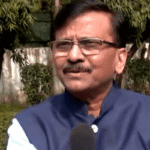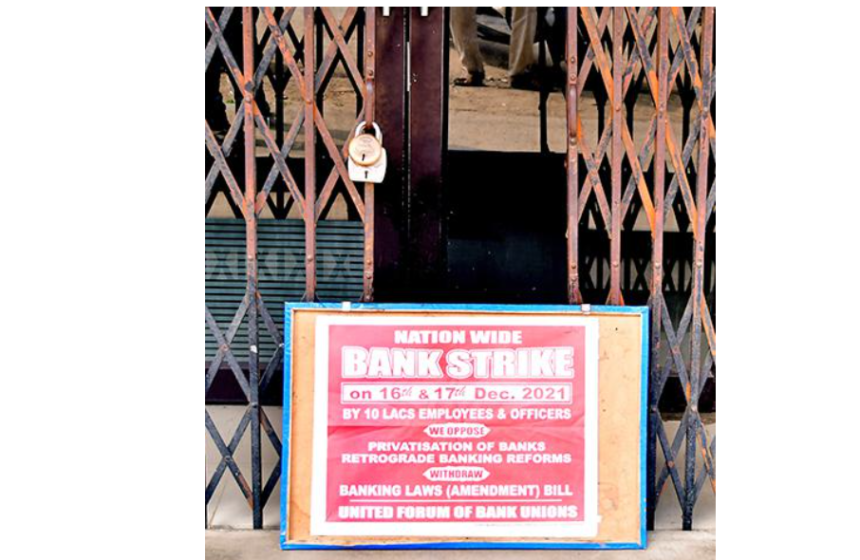In a bold move that has caught the attention of the entire banking industry, a prominent bank staffers’ union has issued a warning of a potential nationwide strike in response to what it describes as sparse hiring by public sector banks across the country. The union has raised concerns over the acute shortage of staff, which has led to increased workloads, stress, and burnout among existing employees. This impending agitation could disrupt the operations of public sector banks (PSBs), affecting millions of customers, small businesses, and the broader economy.
The grievances voiced by the bank staffers’ union are symptomatic of larger structural issues facing India’s banking industry. With a growing economy and increased demand for banking services, the workforce in public sector banks has not kept pace with these developments. In this article, we will explore the reasons behind this potential strike, the state of hiring in the public sector banks, the implications of the staff shortage, and the broader impact on the Indian economy.
Rising Discontent: What Triggered the Union’s Warning?
The discontent within the banking workforce has been simmering for some time now, but it reached a boiling point recently when several public sector banks announced that they were freezing or significantly reducing new hiring. Despite the ongoing economic recovery post-pandemic and the increasing reliance on banks for various financial services, the hiring freeze has led to a glaring gap between the available workforce and the demand for services.
The Union’s Key Grievances
The bank staffers’ union has outlined several grievances that have prompted the call for a potential nationwide strike:
- Staff Shortages: One of the most pressing issues is the inadequate hiring of new employees. Many public sector banks have not been recruiting at the required levels, despite rising retirements and resignations. As a result, existing employees are left to handle the growing workloads, which is leading to longer hours, increased pressure, and fatigue.
- Workload Imbalance: With fewer staff members to share the load, bank employees are often working well beyond their official hours to manage day-to-day operations. This has led to burnout and dissatisfaction, particularly as workloads in branches have become more complex due to increased digital services, financial inclusivity initiatives, and government schemes such as the Jan Dhan Yojana.
- Stagnation in Career Progression: The lack of recruitment has also led to stagnation in career progression for many employees. Without new hires, the opportunities for promotions have been limited, which has further demoralized the workforce. Employees feel that they are not being adequately recognized or compensated for their hard work and loyalty.
- Pressure of Retirements: A large proportion of bank employees are nearing retirement age, and their departure is expected to leave a substantial gap in the workforce. The union argues that insufficient hiring to replace retiring staff will worsen the situation, creating operational challenges and reducing the overall quality of service.
- Impact on Customer Service: With fewer staff, customer service has inevitably suffered. Long queues in branches, delayed services, and frustrated customers have become common complaints. The union warns that unless the staffing issue is addressed, the situation could deteriorate further, leading to widespread customer dissatisfaction and damage to the public sector banks’ reputation.
The Current State of Hiring in Public Sector Banks
Why Are Banks Not Hiring?
Public sector banks (PSBs) in India have traditionally been one of the largest employers in the financial sector. However, in recent years, the hiring momentum has slowed down considerably. Several factors are contributing to this hiring freeze or slowdown, including:
- Cost-Cutting Measures: Many public sector banks have been struggling with non-performing assets (NPAs) and financial constraints. In an effort to control costs, they have reduced their hiring budgets. Banks are focusing on cost-efficiency and are reluctant to increase staffing costs, even as workloads increase.
- Merger of Banks: The government’s decision to merge several public sector banks into larger entities has also impacted hiring. With the consolidation of multiple banks, there Bank Staffers is a perception that there is less need for hiring new staff, as the merged entities are expected to optimize their workforce. However, in reality, the mergers have often led to increased complexity in operations, necessitating more staff rather than fewer.
- Shift Towards Digitalization: The Bank Staffers banking sector is increasingly embracing digital services, with more transactions and customer services being conducted online. Some banks argue that the need for physical branches and staff has decreased due to the rise of digital banking platforms. However, while digitalization has reduced the need for some traditional roles, it has not eliminated the need for branch-based operations, especially in rural and semi-urban areas where digital penetration remains low.
- Retirement and Attrition: A Bank Staffers significant number of public sector bank employees are approaching retirement age. Despite this, there has not been enough recruitment to fill the gaps left by these retirements. Additionally, many younger employees have been leaving the sector due to better opportunities elsewhere, further exacerbating the staffing issue.
Recruitment Exams and the Competitive Landscape
Bank Staffers One of the avenues for hiring in public sector banks is through competitive exams such as the Institute of Banking Personnel Selection (IBPS) exams. These exams are highly competitive, and only a small percentage of candidates are selected each year. Despite the demand for jobs in the banking sector, the number of positions being filled has not matched the sector’s needs.
Moreover, Bank Staffers with the rise of the private banking sector, many talented candidates are choosing to work in private banks, where the compensation packages and career growth opportunities are often more attractive. This has created a challenge for public sector banks in attracting top talent.
Implications of Sparse Hiring
The Bank Staffers reduction in hiring in public sector banks has far-reaching implications, not just for the employees but also for the broader Indian economy. The potential strike being called by the bank staffers’ union underscores the gravity of the situation.
Impact on Bank Employees
For bank employees, sparse hiring means increased workloads, greater stress, and fewer opportunities for advancement. Employees are often required to take on additional responsibilities without any corresponding increase in compensation. This has led to a rise in job dissatisfaction and attrition within the sector.
Furthermore, Bank Staffers the lack of new hires has led to a situation where experienced staff members are overburdened, while new employees are not being recruited or adequately trained to handle complex banking operations. This imbalance is contributing to operational inefficiencies within many public sector banks.
Impact on Customer Service
For customers, Bank Staffers the staff shortage in banks has resulted in longer wait times and poorer service quality. Public sector banks are known for serving a large segment of India’s population, particularly in rural and semi-urban areas where private banks have less presence. As a result, any disruption in the functioning of public sector banks due to staff shortages can have a direct impact on millions of customers who rely on these banks for their daily financial needs.
Impact on Financial Inclusion
Public sector banks have been at the forefront of promoting financial inclusion in India. They play a crucial role in implementing government schemes such as Pradhan Mantri Jan Dhan Yojana, Direct Benefit Transfers (DBT), and various agricultural loan schemes. A shortage of staff in these Bank Staffers could hinder the delivery of these services, slowing down the financial inclusion efforts and adversely affecting those in rural and marginalized communities.
Impact on Economic Growth
The Bank Staffers banking sector is the backbone of India’s economy, and any disruption in its operations can have ripple effects on the broader economy. With public sector banks being a key player in providing credit to businesses, especially small and medium enterprises (SMEs), the staff shortages could delay loan approvals, disrupt business operations, and ultimately slow down economic growth.
Union’s Demands and the Path Forward
In Bank Staffers response to these issues, the bank staffers’ union has put forward several demands to address the sparse hiring problem:
- Immediate Recruitment Drive: The union is calling for an immediate recruitment drive to fill the existing vacancies and replace retiring staff. They argue that without adequate staffing, the quality of service will continue to decline, and employees will continue to face excessive workloads.
- Focus on Employee Welfare: The union is also advocating for better working conditions, including reasonable work hours, fair compensation for overtime, and more opportunities for career progression. They believe that improving employee welfare will not only reduce burnout but also help retain talent within the sector.
- Greater Investment in Training: The union has emphasized the need for greater investment in training and upskilling employees, particularly in the face of digital transformation. With the rise of digital banking, employees need to be equipped with the necessary skills to navigate new technologies and serve customers more effectively.
- Engagement with the Government and Banks: The union is calling for a constructive dialogue with the government and bank management to address the underlying issues and find long-term solutions. They believe that through open communication, the banking sector can resolve these issues without the need for a nationwide strike.
Conclusion: A Critical Juncture for India’s Banking Sector
The warning of a nationwide strike by bank staffers’ unions is a wake-up call for the entire banking industry in India. The grievances over sparse hiring are not just about the welfare of the employees but also about the future of public sector banks and their ability to serve the nation effectively.
Addressing the hiring freeze, increasing staff welfare, and ensuring that public sector banks are adequately staffed to handle growing customer demands are essential steps that need to be taken. If these issues are not resolved, the consequences could be far-reaching, affecting millions of customers, businesses, and the broader Indian economy. ALSO READ:- Abhishek Powers India-A to a Thumping Win Over UAE: A Star Performance in a Dominant Victory 2024





